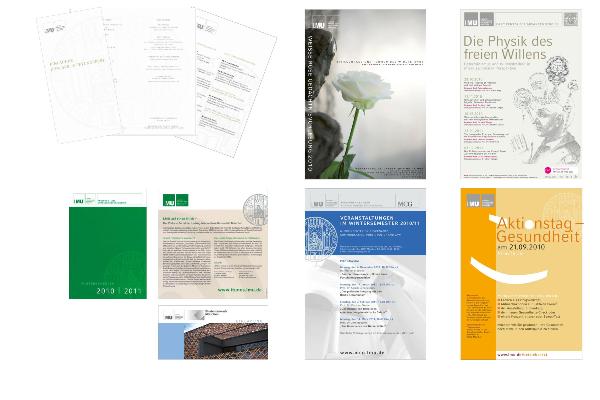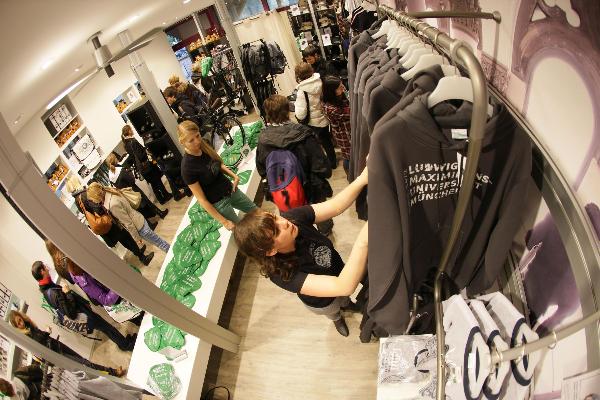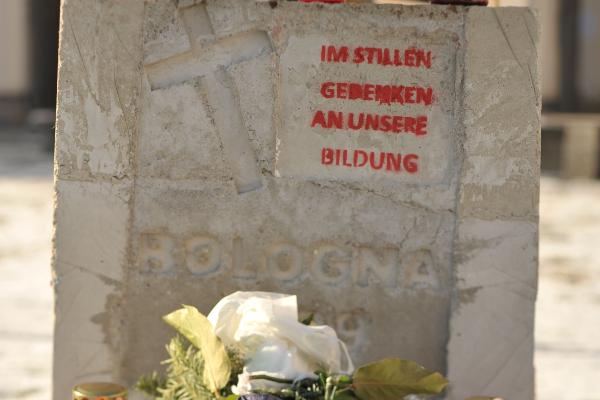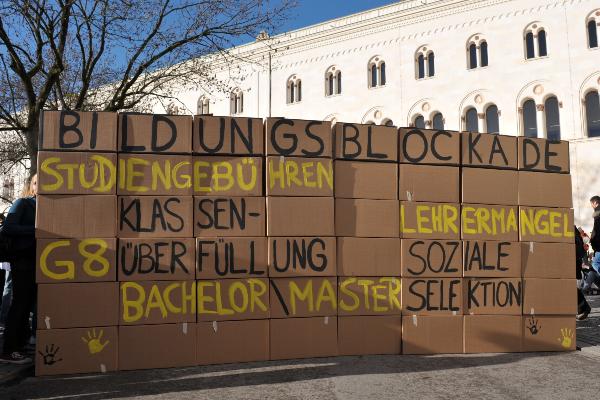The keywords 'Excellence' and 'Bologna' designate the two issues that have particularly marked the evolution of LMU in the early 21st century. In 2004 the Bavarian State Government decided on substantial cuts in the budgets of all ministries. To counteract the effects of the cutbacks on the University, LMU adopted the “LMUinnovativ” program, a strategy designed to create a distinctive profile for the institution by setting priorities, enhancing performance and boosting competitiveness. In its essentials, this process continues to this day. With the help of external assessors, research priorities were defined in four subject areas, which were targeted for special support. Ongoing worldwide competition for talented researchers at the forefront of innovation makes it necessary to build on existing strengths and focus resources on particularly promising areas, without neglecting the underlying structure of academic scholarship as a whole. LMU’s success in the Excellence Initiative of 2006 can largely be attributed to the implementation of the “LMUinnovativ” program. In 2008 and 2009, a new stage in profile development, the "50-40-10 process", was initiated. The title refers to the goal of awarding 50% of all professorships vacated prior to 2016 to representatives of the same subject area, reorienting 40% to take account of recent developments in the field, and allocating the financial resources previously spent on the remaining 10% as follow-up funding for projects set up with grants from the Excellence Initiative. As a result of these measures, LMU has succeeded in significantly sharpening its research profile, creating new and financially sustainable structures, and enhancing its international reputation. The University’s exceptional showing in the second phase of the Excellence Initiative is testimony to this success.
In the context of the Bologna Process, which was intended to provide for greater mobility and integration of third-level courses in Europe by establishing agreed, cross-border standards for assessment, LMU reorganized most of its study courses in the Winter Term 2009/10, much to the dismay of many students and their teachers. The introduction of student fees in 2007 had already provoked widespread protests, and the implementation of the Bologna reform and tuition fees in late 2009 led to the occupation of LMU’s Audimax for several weeks. However, the Bologna process now enjoys broad support, and the decision to impose student fees, with which new positions for teaching staff and tutors were funded, was revoked in time for the Winter Semester of 2013/14.
Apart from Bologna and the Excellence Initiative, there have been other notable changes at LMU over the past few years. The University has gained in international visibility, thanks to its cooperation agreements with leading American and Chinese universities. A significant proportion of LMU’s student body now comes from abroad, while LMU students are among the most assiduous of German participants in the Erasmus program. With its adoption of a new corporate design in 2007, LMU has acquired a highly distinctive public image. The instantly recognizable LMU logo now appears on letterheads, T-shirts, watches and, of course, on the Internet. The LMU website has developed into an indispensable information source for students, the media and anyone who wishes to know what is going on at the University. Here they can learn the latest on new study programs, research findings and topics of current interest.
In 2012, LMU was very successful in the Qualitätspakt Lehre, a nationwide, competitive funding program designed to raise the quality of university teaching: LMU’s proposal, Lehre@LMU, was funded with around 46 million euros until 2021. Lehre@LMU achieved three objectives: The first ensured that teaching modules place more emphasis on the links between research and its practical applications by systematically developing integrative didactic concepts. The second broadened the range of mentoring and advisory services for students to cater for the specific needs of different target groups, and so provided appropriate support for each stage of their academic and professional development. Making productive use of the diversity of the student body, critical transitional phases of students' educational biographies were actively shaped by improving LMU’s support services. To achieve this, academic and advisory personnel, including student tutors, received the appropriate training.
A further innovation is already making life easier for students in the Bavarian capital: Beginning in the Winter Semester of 2013/14, students at LMU (and other third-level institutions in the Munich area) can purchase a semester ticket which is valid for travel on the entire MVV network for the whole term.
In 2019, in the context of the Excellence Strategy funded by Federal and State Governments, LMU was designated as a University of Excellence and was awarded a corresponding level of long-term funding. The latter innovation in the implementation of the Excellence Strategy will allow LMU to extend its successful approach to development. A new long-term program entitled "LMUexcellent: A New Perspective", which will enable LMU to consolidate its position as a leading international university. an important element of the new program envisages a flexibiization of recruiting practices with a view to strengthening existing fields of research, rapidly responding to emerging trends, and appointing outstanding scholars and scientists to fill vacant faculty posts.




